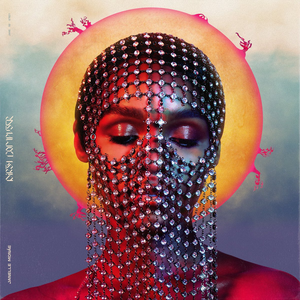
Haraway’s “Cyborg Manifesto” and Janelle Monáe’s Dirty Computer both offer a bold, futuristic vision where the idea of identity, especially around gender and sexuality, is fluid and constantly evolving. In her manifesto, Haraway talks about breaking down the rigid boundaries between categories like human/machine and male/female. She imagines a world where we aren’t boxed in by these binaries, which opens up the potential for freedom in how we define ourselves. Now, fast forward to Dirty Computer—Monáe takes these ideas and brings them into a dystopian, yet deeply personal, narrative.
Take the track “Pynk,” for example. It’s all about celebrating femininity, but not in a way that fits traditional molds. It’s soft, it’s loud, it’s unapologetic—and it speaks to the kind of fluid identity Haraway describes. Monáe embraces this non-binary, post-gender freedom by blending themes of queerness and empowerment, pushing back against societal labels in the same way Haraway’s cyborg refuses to be neatly categorized. Then there’s “Screwed,” where Monáe addresses how systems of power try to control bodies—sexuality, gender expression, freedom of identity—echoing Haraway’s critique of oppressive structures that enforce conformity.
What’s cool about Monáe is how she doesn’t just theorize; she lives this rebellion. Just like Haraway’s cyborg, Monáe’s characters refuse to be sanitized or “fixed.” Instead, they celebrate their “dirtiness”—their difference—as a form of resistance. It’s as if Monáe’s album is the soundtrack to Haraway’s post-gender, post-binary future, where being a hybrid, being fluid, is the ultimate rebellion against a world that tries to erase individuality. Monáe’s vibrant artistry and thought-provoking lyrics challenge us to embrace our complexities and redefine what it means to be human in a rapidly changing world.
As someone who loves Janelle Monáe (and who wouldn’t?), it’s exciting to see how she channels these deep philosophical ideas into something that also makes you want to dance, think, and maybe even shout. Monáe takes the cyborg concept and gives it a groove.
Published by